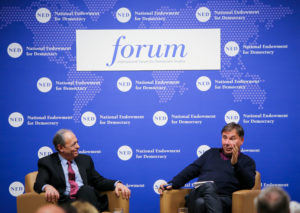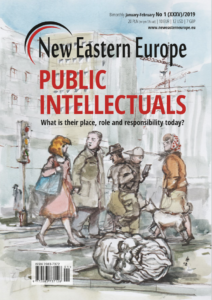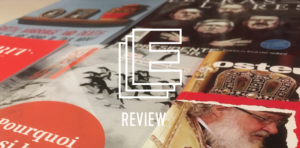To understand Central Europe ’s illiberal metamorphosis, bear in mind that the region’s political imperative for almost three decades was “Imitate the West!” That process went by different names – democratization, liberalization, convergence, integration, Europeanization – but it was essentially an effort by post-communist reformers to import liberal-democratic institutions, adopt Western political and economic frameworks, and publicly embrace Western values, argues Ivan Krastev, Chairman of the Sofia-based Center for Liberal Strategies.
 In the event, adopting a foreign model of political economy turned out to have unexpected moral and psychological downsides, he writes for Project Syndicate:
In the event, adopting a foreign model of political economy turned out to have unexpected moral and psychological downsides, he writes for Project Syndicate:
For the imitator, life becomes dominated by feelings of inadequacy, inferiority, dependency, and lost identity. Creating and inhabiting a credible copy of an idealized model requires never-ending criticism of – if not contempt for – one’s identity up to that point. When an entire country undergoes this self-renunciation, a debilitating feeling of constantly being judged inevitably becomes endemic. After all, the realization of an ideal is, by definition, impossible.
 Many liberals are shocked by the rise in recent years of xenophobic nationalism in Poland and Hungary, given that both have made substantial economic progress since joining the European Union, Krastev* writes in The Metamorphosis of Central Europe. But that simply means that Central Europe’s turn toward populism cannot be explained in economic terms.
Many liberals are shocked by the rise in recent years of xenophobic nationalism in Poland and Hungary, given that both have made substantial economic progress since joining the European Union, Krastev* writes in The Metamorphosis of Central Europe. But that simply means that Central Europe’s turn toward populism cannot be explained in economic terms.
How can intellectuals of central Europe maintain their moral principles and independence, yet support democracy, in an age when the region is again traversing a rocky road paved with nationalism and populism? Samuel Abraham asks in New Eastern Europe (HT: Eurozine, a partner of the National Endowment for Democracy.)
Marta Pardavi, a leading Hungarian rights activist paints a bleak portrait: the shrinking space for NGOs as the government cracks down, the monopolization of the media by Orban allies and the concentration of power in the hands of one man, The Washington Post adds.
But recent protests in Budapest and Serbia by broad-based coalitions suggest that civil society is contesting the authoritarian turn.

Eurozine
The immediate causes that channeled these diverse coalitions into the streets differ, writes Tucker Jones, the International Republican Institute’s Senior Program Associate for Europe:
In Hungary, a law allowing employers to require up to 400 hours of overtime per year while delaying payment for overtime hours for up to three years, popularly referred to as the “slave law,” is the main impetus. In Serbia, 2018 was a bloody year full of attacks on politicians and journalists: protesters cite the failure of the government to investigate the January 2018 assassination of Kosovo Serb politician Oliver Ivanovic, the brutal November beating of opposition politician Borko Stefanovic, and the December assassination attempt on journalist Milan Jovanovic, among others, as evidence of the government’s incompetence or complicity in political violence.
 The dismantling of Hungarian democracy has not spared universities, including the celebrated Central European University, notes Ronald J. Daniels, the president of Johns Hopkins University. The eviction is especially painful because CEU is a remarkable institution, he writes for The Post:
The dismantling of Hungarian democracy has not spared universities, including the celebrated Central European University, notes Ronald J. Daniels, the president of Johns Hopkins University. The eviction is especially painful because CEU is a remarkable institution, he writes for The Post:
Founded by the Hungarian-born philanthropist George Soros and originally established in Prague in 1991, CEU was built to assist the former Soviet bloc in its transition from communism to liberal democracy through a revival of the social sciences and humanities in Central and Eastern Europe. It was to be a place that would train future civil servants, challenge existing orthodoxies and nurture those habits of mind and reason that are characteristic of liberal democracy.
In conversation with Tim Judah, British journalist and Balkans correspondent for the Economist, Piotr Buras, Head of the European Council on Foreign Relations’ Warsaw Office, will discuss the origins and consequences of this new wave of authoritarianism and what needs to be done to save liberal democracy before it is too late. Both speakers are currently Visiting Fellows of IWM’s Europe’s Futures project. Watch the full debate (above).
*Krastev is the 2018-2019 Henry A. Kissinger Chair in Foreign Policy and International Relations at the John W. Kluge Center at the Library of Congress and the co-author (with Stephen Holmes) of the forthcoming book The Light that Failed: How the West Won the Cold War and Lost the Peace.







